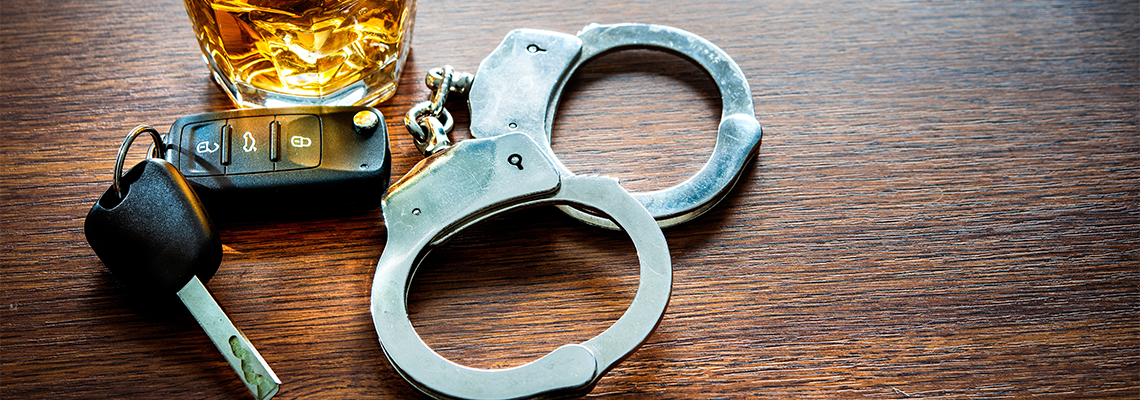Digital evidence can shape white-collar investigations long before anyone is arrested. Emails, chat logs, accounting files, cloud records, and even routine device data can be pulled into a timeline that prosecutors can use to explain who did what, when, and why.

DWI Arrest and Body Camera Video
According to the National Highway Transportation Safety Administration (NHTSA), there are approximately 17 traffic fatalities for every 100,000 licensed drivers and 1,000 injured persons for every 100,000 licensed drivers in any given area on an annual basis. The percentage of these fatalities that are alcohol-related hovers at just under 30 percent.
The most common term for an alcohol-related traffic citation, whether it results in injuries or not, is a DUI (driving under the influence), but in New York, the applicable laws are called DWI (driving while intoxicated) and DWAI (driving while ability impaired). Both charges can result in serious consequences, including loss of driving privileges, fines, and possible jail time.
Before the widespread use of body cameras worn by police, many DWI and DWAI charges rested on testimony by the arresting officer, perhaps along with breathalyzer or blood tests. If you were accused of a DUI-related violation, it could be your word against the arresting officer. Now that bodycam footage can be obtained, it can be used in your defense if it shows the police misstated facts or it shows that you were not as impaired as the police claimed.
If you are facing a DWI or DWAI charge in Westchester County, New York, contact the Law Office of Michael D. Litman, PLLC. Our criminal defense attorney will listen to your story, investigate, and develop a sound strategy to obtain the best possible result for you, including possible dismissal, using everything available, including a request for bodycam footage. We also serve clients in all surrounding areas, including White Plains, Harrison, and Yonkers.
DWI/DWAI Charges in New York
You can be charged with a DWI, driving while intoxicated, if a breathalyzer or blood test shows your blood alcohol content (BAC) to be 0.08 percent or higher. However, even in the absence of a BAC reading, you can be charged based on other evidence of intoxication, which mostly involves the observation and testimony of the arresting officer(s). The BAC threshold is lower for commercial drivers at 0.04 percent and for drivers under 21 years of age at 0.02 percent.
A DWAI charge can be filed for adult non-commercial drivers if the BAC is between 0.04 and 0.07 percent. Refusing to take the breathalyzer test, however, can result in DMV administrative penalties that can lead to a one-year revocation of driving privileges and a $500 DMV assessment. Police can still choose to charge you with a DWI or DWAI if you refuse, based on the officer’s testimony.
Penalties for DWI/DWAI
DWI penalties depend upon whether it’s a first-time offense and whether a minor, fifteen (15) years old or less, was in the vehicle at the time of arrest, or whether any injuries to others resulted from the driving. At the most basic, the penalties for a DWI can include:
A fine of between $500 and $1,000
Jail time of up to 364 days
Revocation of driving privileges for six months or more
Installation of an Ignition Interlock Device (IID)
A DWAI violation conviction has somewhat lesser penalties, including a fine of $300 to $500, jail time of up to 15 days, and a license suspension of 90 days. There is also a criminal charge of DWAI by Drugs, which means you are operating a vehicle when impaired by drugs in your system, which can range from marijuana to opiates and beyond.
The Role of Body Camera Video in DWI Cases
Since about 2017, police officers, detectives, sergeants, and lieutenants throughout New York State’s police departments have been wearing what are called body cameras. These cameras record both video and audio (unless turned off) of everything the wearer does when circumstances warrant.
Officers are required to have their body cameras turned on and recorded during any arrest or interaction with people suspected of criminal activity. As a result, on a suspected DWI/DWAI traffic stop, the body camera footage can provide invaluable evidence of what transpired.
Of course, if the footage shows a stumbling, bumbling, alcohol/drug-impaired arrestee, that will bolster the case brought by police against the defendant in a DWI/DWAI trial or hearing. On the other hand, if the footage shows the alleged impaired driver acting normally and exhibiting no signs of an inability to drive, that can bolster the defendant’s case, maybe to the point of getting it dismissed. In addition, in DWI refusal cases, the recordings can show if the officer properly determined that there was a refusal.
Obtaining Body Camera Footage
In 2019, New York State made significant changes to the way prosecutors need to give evidence to the defense. Prosecutors are now required to automatically provide all evidence and discovery that is in their possession or control, to the defense. This discovery includes all body-camera, vehicle/dash-camera, and station-camera videos.
Secure Your Best Defense
We review all body-camera footage so we know the best way to defend against a DWI/DWAI charge. The footage may indeed show the police to have overreacted or misjudged your physical state and driving ability. Viewing all of the footage is part and parcel of a solid defense strategy that can help you obtain a lesser or even dropped charge or perhaps an acquittal.
If you are facing a DWI/DWAI charge in Westchester County, contact the Law Office of Michael D. Litman, PLLC immediately. Let’s examine every aspect of what happened and come up with the best defense plan possible. You don’t want a DWI/DWAI conviction haunting you as you go forward in life.
RECENT POSTS
Facing criminal charges can be an overwhelming and stressful experience, particularly when they could escalate from a misdemeanor to a felony. Many people may not realize that what starts as a seemingly minor offense can, in certain circumstances, turn into something far more serious with much more severe consequences.
In New York, misdemeanors are divided into three main categories: Class A, Class B, and unclassified misdemeanors. Class A misdemeanors are the most serious, while Class B misdemeanors are less severe, and unclassified misdemeanors often involve specific statutes such as traffic or local ordinances. Although misdemeanors are less severe than felony offenses, they can still carry significant penalties, including jail time, fines, and a lasting criminal record.




